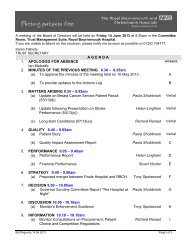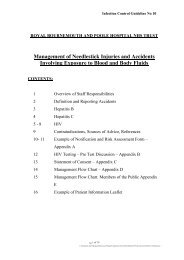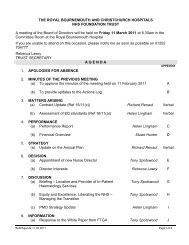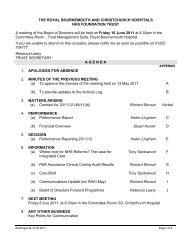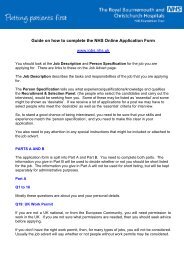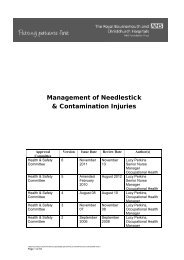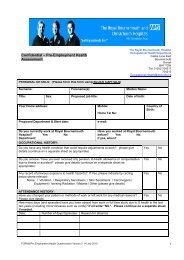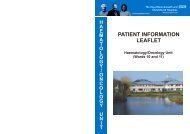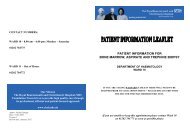Resuscitation Policy (DNAR) July 12 - Royal Bournemouth Hospital
Resuscitation Policy (DNAR) July 12 - Royal Bournemouth Hospital
Resuscitation Policy (DNAR) July 12 - Royal Bournemouth Hospital
- No tags were found...
You also want an ePaper? Increase the reach of your titles
YUMPU automatically turns print PDFs into web optimized ePapers that Google loves.
This form should be completed legibly in black ball point inkAll sections should be completedThe patient’s full name, date of birth and address should be written clearly.The date of writing the order should be entered.This order will be regarded as “INDEFINITE” unless it is clearly cancelled or a definite review date isspecified.The order should be reviewed whenever clinically appropriate or whenever the patient is transferred from onehealthcare institution to another, admitted from home or discharged home.If the decision is cancelled the form should be crossed through with 2 diagonal lines in black ball-point inkand “CANCELLED” written clearly between them, signed and dated by the healthcare professional cancellingthe order.1. Capacity / advance decisionsRecord the assessment of capacity in the clinical notes. Ensure that any advance decision is valid for thepatient’s current circumstances.16 and 17-year-olds: Whilst 16 and 17-year-olds with capacity are treated as adults for the purposes of consent, parental responsibility willcontinue until they reach age 18. Legal advice should be sought in the event of disagreements on this issue between a young person of 16 or 17and those holding parental responsibility.2. Summary of the main clinical problems and reasons why CPR would beinappropriate, unsuccessful or not in the patient’s best interestsBe as specific as possible.3. Summary of communication with patient…State clearly what was discussed and agreed. If this decision was not discussed with the patient state the reason whythis was inappropriate.4. Summary of communication with patient’s relatives or friendsIf the patient does not have capacity their relatives or friends must be consulted and may be able to help by indicatingwhat the patient would decide if able to do so. If the patient has made a Lasting Power of Attorney, appointing aWelfare Attorney to make decisions on their behalf, that person must be consulted. A Welfare Attorney may be able torefuse life-sustaining treatment on behalf of the patient if this power is included in the original Lasting Power of Attorney.If the patient has capacity ensure that discussion with others does not breach confidentiality.State the names and relationships of relatives or friends or other representatives with whom this decision has beendiscussed. More detailed description of such discussion should be recorded in the clinical notes where appropriate.5. Members of multidisciplinary team…State names and positions. Ensure that the <strong>DNAR</strong> order has been communicatedto all relevant members of the healthcare team.6. Healthcare professional completing this <strong>DNAR</strong> orderThis will vary according to circumstances and local arrangements. In general this should be the most senior healthcareprofessional immediately available.7. Endorsement / review…The decision must be endorsed by the most senior healthcare professional responsible for the patient’s care at theearliest opportunity. Further endorsement should be signed whenever the decision is reviewed. A fixed review date isnot recommended. Review should occur whenever circumstances change.REINSTATEMENT OF A <strong>DNAR</strong>: if this situation were to arise then a new form should be used.<strong>Royal</strong> <strong>Bournemouth</strong> & Christchurch <strong>Hospital</strong>s NHS Foundation Trust.



